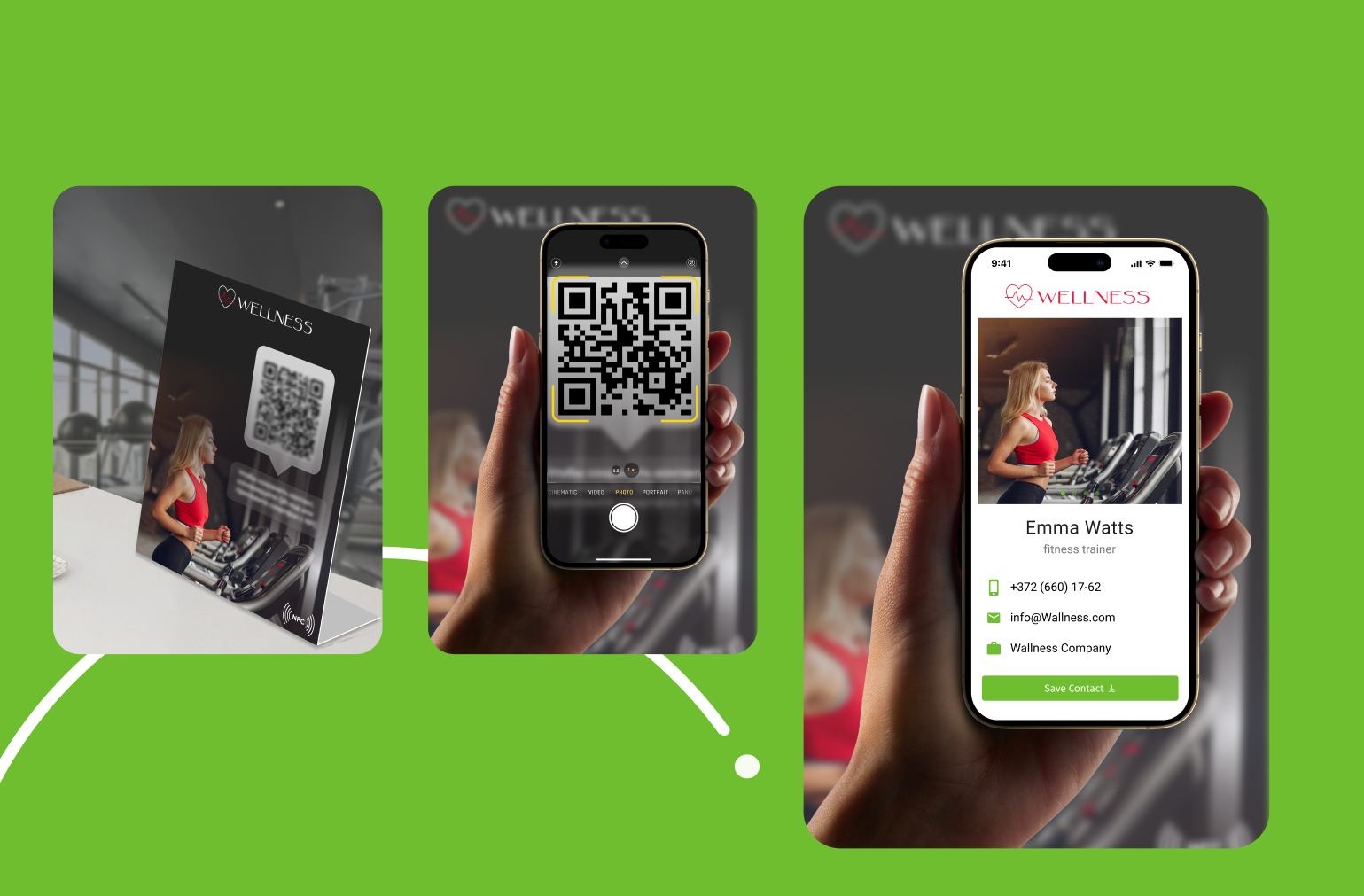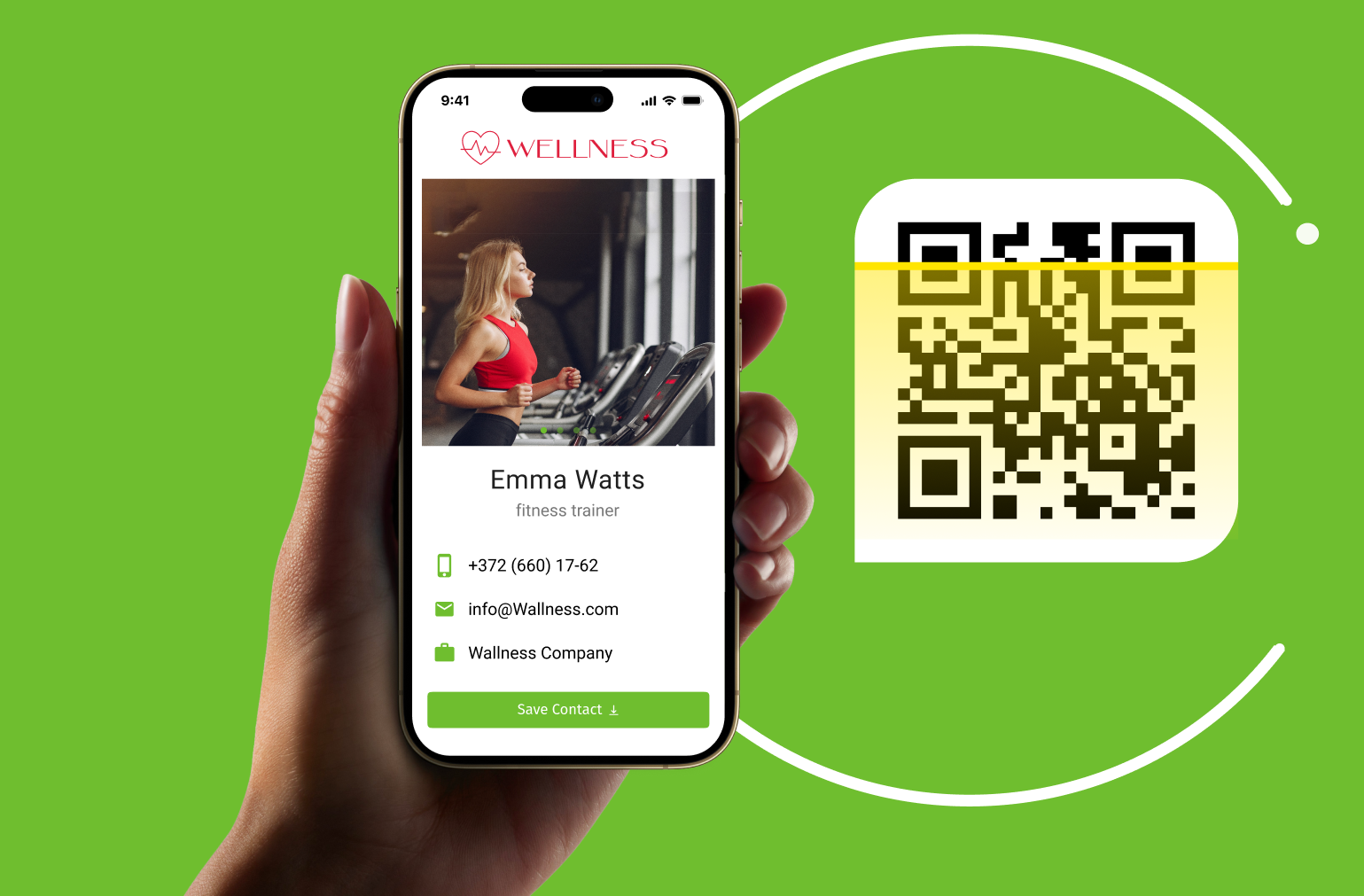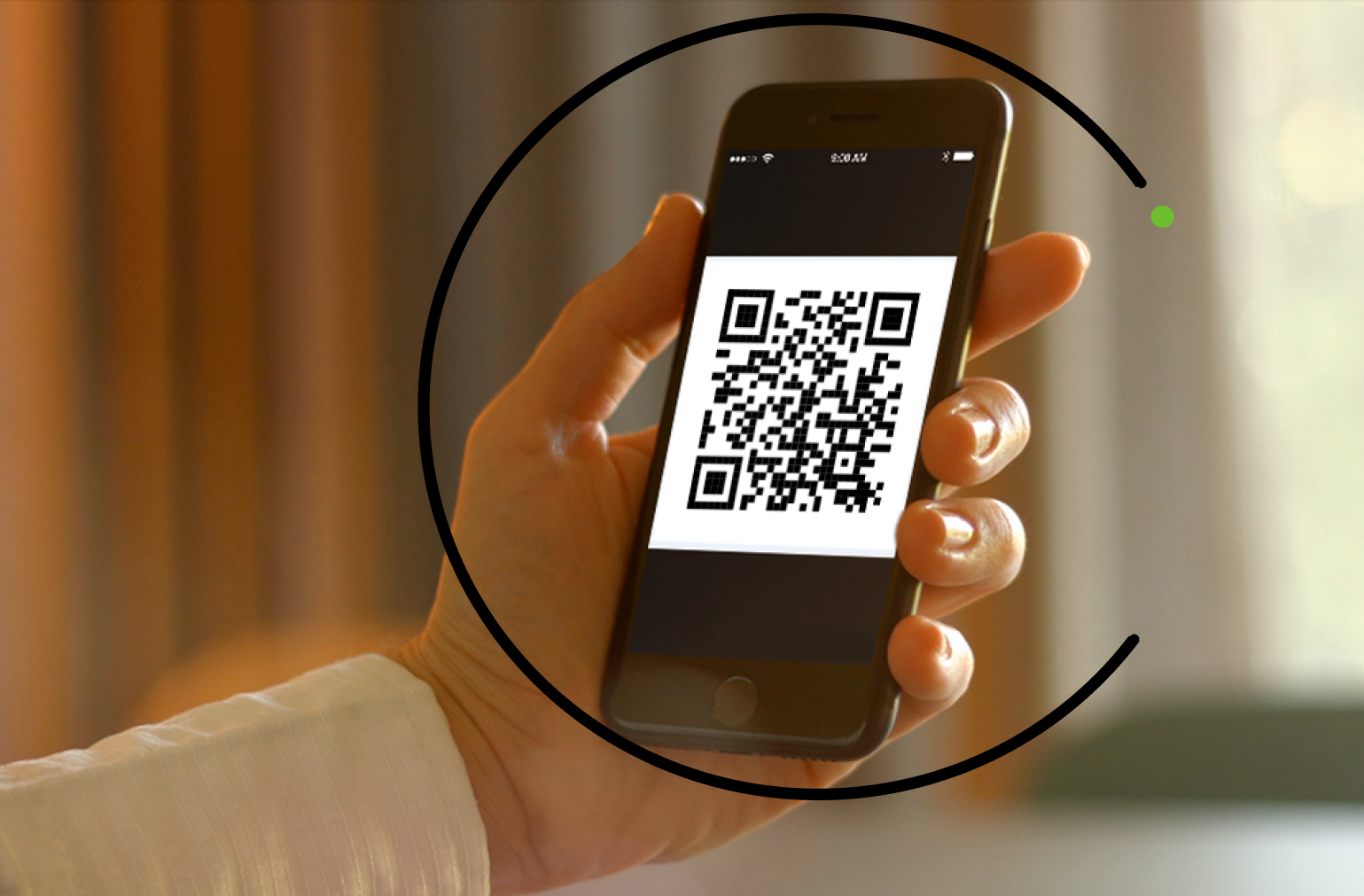We recently covered the use of QR codes in the hospitality industry. A well-thought-out QR code strategy can significantly improve the customer experience and increase your brand awareness. Here are 3 lessons B2B marketers can learn from a QR code strategy in the hospitality industry.
QR codes provide you with a great opportunity to see the DNA of each customer's interaction with your business partners. While QR technology took some time to gain traction, early in the pandemic it quickly became a one-stop solution for brands looking to create contactless applications.
Since then, the strategy of using QR codes has evolved, with the hospitality industry leading the way.
There, QR codes provide customers with simplified access to online ordering through restaurant partnerships, easy ticketing at entertainment venues, and access to on-site and off-site services at hotels.
For B2B marketers looking to improve their marketing insights, here are three lessons that can be learned from a QR code strategy in the hospitality industry.
QR codes provide you with a great opportunity to see the DNA of each customer's interaction with your business partners. While QR technology took some time to gain traction, early in the pandemic it quickly became a one-stop solution for brands looking to create contactless applications.
Since then, the strategy of using QR codes has evolved, with the hospitality industry leading the way.
There, QR codes provide customers with simplified access to online ordering through restaurant partnerships, easy ticketing at entertainment venues, and access to on-site and off-site services at hotels.
For B2B marketers looking to improve their marketing insights, here are three lessons that can be learned from a QR code strategy in the hospitality industry.
1. To stay competitive, you must utilize QR codes
When restaurants, hotels and other establishments suffered the first fallout from the pandemic, hospitality leaders quickly turned to technology and creative ways to safely engage customers. Early adoption of QR codes to facilitate touch-free ordering in restaurants allowed many vendors to stay in business. But what started as a security necessity has evolved into a new data opportunity.
Today, this technology is shaping how hospitality establishments build their partnerships.
Traditionally, if a hotel partnered with a nearby restaurant, the concierge might refer to them in conversations with guests. Now, consumers have the ability to quickly and independently place orders at these partner restaurants with a single scan. All it takes is one strategically placed QR code to trigger a customized customer experience.
Some restaurants are already accomplishing this by storing customer orders collected through major marketing channels. Service staff can then use this information to improve service, often with service suggestions. Exemplary customer experience is one of the biggest differentiators between brands, and your competitors know it.
Today, this technology is shaping how hospitality establishments build their partnerships.
Traditionally, if a hotel partnered with a nearby restaurant, the concierge might refer to them in conversations with guests. Now, consumers have the ability to quickly and independently place orders at these partner restaurants with a single scan. All it takes is one strategically placed QR code to trigger a customized customer experience.
Some restaurants are already accomplishing this by storing customer orders collected through major marketing channels. Service staff can then use this information to improve service, often with service suggestions. Exemplary customer experience is one of the biggest differentiators between brands, and your competitors know it.

2. Strategic placement of a QR code has a significant impact on the quality of your customer experience
Simply placing a code on any surface does not optimize its value. A QR code must be strategically placed and be convenient for end users.
How and where you place a QR code often affects your customer's understanding of its purpose. That's why QR code stickers placed arbitrarily around subway terminals, for example, are unlikely to attract traffic. If a code doesn't have a clear purpose and people don't know where it will lead them, it fails the simplest security test.
Hospitality establishments understand the strategic impact of aligning location with purpose. That's why if you go to a hotel, you're likely to encounter QR codes exactly where you need them.
Clothes piling up and you need to do laundry? You'll see a code to the right of your shopping cart that will redirect you to the laundry service partnered with your hotel. Hungry and checking your refrigerator for snacks? You can expect to see a QR code on your refrigerator door that will take you to a restaurant's website where you can order room service food.
A properly placed QR code isn't just easy to use - it improves the customer experience by providing guests with timely solutions to any problems they may encounter.
Strategic placement is also critical to customer acquisition. When you place a QR code in a convenient location, it creates value for both your customer and your data collection.
After a successful interaction, the likelihood that customers will use QR codes to further interact with your brand will increase. This is partly because your placement demonstrates that your brand knows what customers are looking for and meets their expectations.
How and where you place a QR code often affects your customer's understanding of its purpose. That's why QR code stickers placed arbitrarily around subway terminals, for example, are unlikely to attract traffic. If a code doesn't have a clear purpose and people don't know where it will lead them, it fails the simplest security test.
Hospitality establishments understand the strategic impact of aligning location with purpose. That's why if you go to a hotel, you're likely to encounter QR codes exactly where you need them.
Clothes piling up and you need to do laundry? You'll see a code to the right of your shopping cart that will redirect you to the laundry service partnered with your hotel. Hungry and checking your refrigerator for snacks? You can expect to see a QR code on your refrigerator door that will take you to a restaurant's website where you can order room service food.
A properly placed QR code isn't just easy to use - it improves the customer experience by providing guests with timely solutions to any problems they may encounter.
Strategic placement is also critical to customer acquisition. When you place a QR code in a convenient location, it creates value for both your customer and your data collection.
After a successful interaction, the likelihood that customers will use QR codes to further interact with your brand will increase. This is partly because your placement demonstrates that your brand knows what customers are looking for and meets their expectations.

3. Consistency in branding is a key element of a successful QR code strategy
Customers won't engage with your brand if they don't trust you, and consistent branding is an effective way to avoid this trap.
Even something as simple as the root domain of your URL after a user scans your QR code shows how seriously your brand takes data security. For example, a custom URL that matches your company's web page can convince customers that you're not just using a free QR code generator to facilitate what should be a secure digital transaction.
In hospitality, this sequence applies to both venue branding and co-branding with its partners. What it means. QR codes should contain the same patterns, logos and colors as the rest of the establishment.
Co-branding applies to all aspects of QR code design. To secure your branding and collaborative branding efforts, identify QR code platforms that have certifications such as SOC2.
These steps will become increasingly important as consumer awareness of security issues grows. Ivanti's survey has already shown that 31 percent of respondents have scanned a QR code that either did something they didn't expect or led them to a suspicious website.
That's why developing your QR code in conjunction with your larger branding or co-branding efforts is such an important task for B2B marketers. A well-designed QR code sets expectations and provides a higher level of security for your customers. This combined with a superior customer experience builds trust and increases their willingness to scan.
Even something as simple as the root domain of your URL after a user scans your QR code shows how seriously your brand takes data security. For example, a custom URL that matches your company's web page can convince customers that you're not just using a free QR code generator to facilitate what should be a secure digital transaction.
In hospitality, this sequence applies to both venue branding and co-branding with its partners. What it means. QR codes should contain the same patterns, logos and colors as the rest of the establishment.
Co-branding applies to all aspects of QR code design. To secure your branding and collaborative branding efforts, identify QR code platforms that have certifications such as SOC2.
These steps will become increasingly important as consumer awareness of security issues grows. Ivanti's survey has already shown that 31 percent of respondents have scanned a QR code that either did something they didn't expect or led them to a suspicious website.
That's why developing your QR code in conjunction with your larger branding or co-branding efforts is such an important task for B2B marketers. A well-designed QR code sets expectations and provides a higher level of security for your customers. This combined with a superior customer experience builds trust and increases their willingness to scan.
A well-designed QR code strategy increases brand awareness
The hospitality industry has truly embraced the QR code. It's a hands-free option that both gives customers greater and more secure access to a company's offerings and provides marketers with a new and exciting channel to source data.
This is why businesses should adopt the practices of hotels and restaurants, as their management is particularly focused on the importance of exceptional customer service. Encouraging the use of QR codes has helped them stay in business, and it's helping them expand their reach.
When you implement a thoughtful QR code strategy, it invests in a new way to improve and personalize the customer experience.
This is why businesses should adopt the practices of hotels and restaurants, as their management is particularly focused on the importance of exceptional customer service. Encouraging the use of QR codes has helped them stay in business, and it's helping them expand their reach.
When you implement a thoughtful QR code strategy, it invests in a new way to improve and personalize the customer experience.







